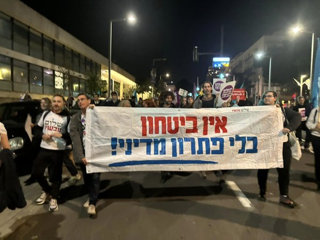
Until recently, almost all religious Jews voluntarily refrained from visiting the Temple Mount, the elevated area on which the ancient Jewish temple once stood and where now stands the Al Aqsa Mosque and Dome of the Rock. After Israel’s 1967 capture of Jerusalem’s Old City, the Chief Rabbinate decreed against such visits for fear of Jews treading on ground where only the ancient High Priest had been allowed to go. Ostensibly this was a religious decision, but it also served a political purpose. The Temple Mount, al-Haram al-Sharif in Arabic, has long been a place of high emotion for both Jews and Muslims. The division of the space – Jews at the Western Wall, Muslims at the al-Aqsa compound – helped preserve a modicum of peace.
Lately, this status quo has been disrupted by messianic, ultra-nationalist Jews insisting on their right to be at the Mount and pray there, resulting in outraged pushback from Muslims. Extremists on both sides of the Israeli-Palestinian divide have exploited the tensions.
On the Jewish side, the tensions are being stoked by individuals at the highest level of government. Last week, Israel’s National Security Minister, Itamar Ben Gvir, made another provocative visit to the Temple Mount – he also did so in January – and issued an inflammatory statement about Israel being “in charge” at the site. This came on the heels of goading visits by other Israeli politicians on Jerusalem Day, the anniversary of Israel’s 1967 capture of East Jerusalem. The Temple Mount provocations were only one aspect of a day of shameful ultra-nationalistic displays during which hordes of Jewish youth marched through the Old City waving Israeli flags, chanting anti-Arab slogans and, in some cases, beating Arabs and destroying property. The whole event – an annual one now – was designed to intimidate the Arab residents and show who is “in charge.”
Peace Now report
Also on Jerusalem Day, which this year fell on May 18, the Israeli government approved 41-million shekels for development projects of ancient Jerusalem sites under the auspices of the Elad settler organization. Elad has been at the forefront of efforts to “Judaize” all of Jerusalem, using archeology to dispossess Palestinian residents of East Jerusalem and disrupting their lives.
Peace Now has called attention to this issue in a report and statement.
Says Peace Now: “Like in every year, the Israeli government celebrates Jerusalem Day by transferring funds to settlers in East Jerusalem. The cabinet meeting in the Western Wall tunnels is a direct continuation of the hate march we witnessed last week on Jerusalem Day. Both of these actions are intended to increase hostility, tension, and hatred between Israelis and Palestinians in the city, rather than finding a peaceful solution between the peoples.”
While the Israeli government has plenty of money to lavish on settler initiatives, it allocates precious little for desperately needed development of Arab East Jerusalem. A proposed five-year plan to boost education, infrastructure and employment in East Jerusalem is being stymied by Finance Minister Bezalel Smotrich and other ministers. Smotrich is particularly opposed to promoting higher education for young Palestinians.
Abbas at UN
Lest we be accused of only finding fault with Israel, we must call out Mahmoud Abbas’ scandalous speech last week at the United Nations. Among his egregious statements was his denial of legitimate Jewish historical ties to the site of the Al Aqsa Mosque compound (Temple Mount). He disputes there was ever a Jewish Temple there. He also accused Israelis of “lying like Goebbels” and he claimed there is biblical proof the Palestinians are the descendants of the ancient Canaanites. Presumably, they therefore have more ancient ties to the land.
It’s tempting to dismiss all this as a rant by a possibly senile, declining authoritarian who enjoys very little support among his own people. However, Abbas is still the official leader of the West Bank Palestinians, and he was given a platform for his slander on an international stage. The effect of his words cannot compare to the effect of Israeli actions in exacerbating Israeli-Palestinian hostilities, particularly over Jerusalem. Nevertheless, his outrageous comments add fuel to the flames.
The word “peace” (shalom) is embedded in the Hebrew name for Jerusalem. Through the ages, it has been called the Holy City and the City of Peace. May the time come – and may we work towards it – when this contested city can live up to these great ideals






